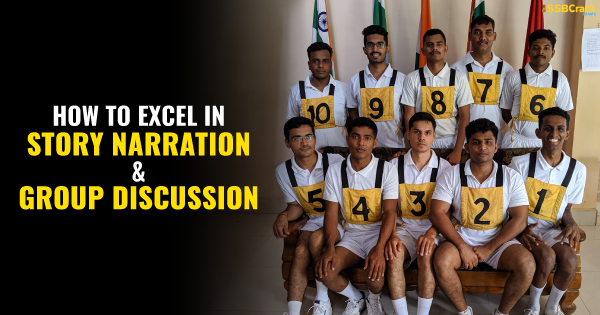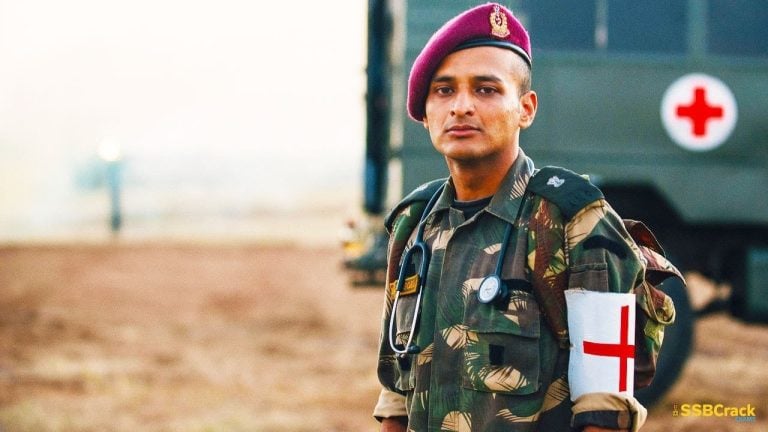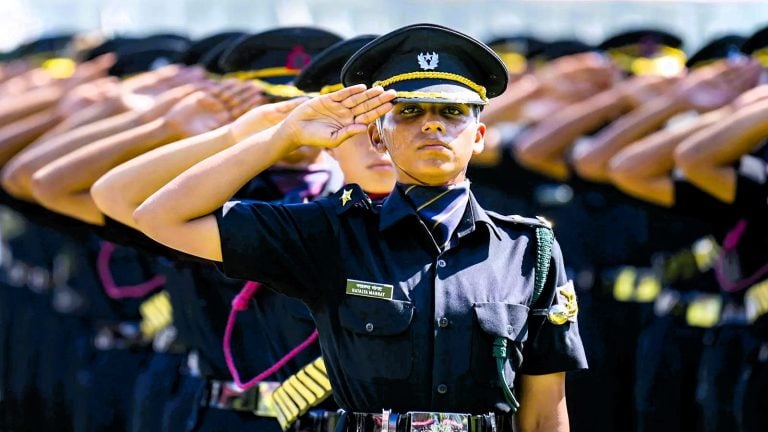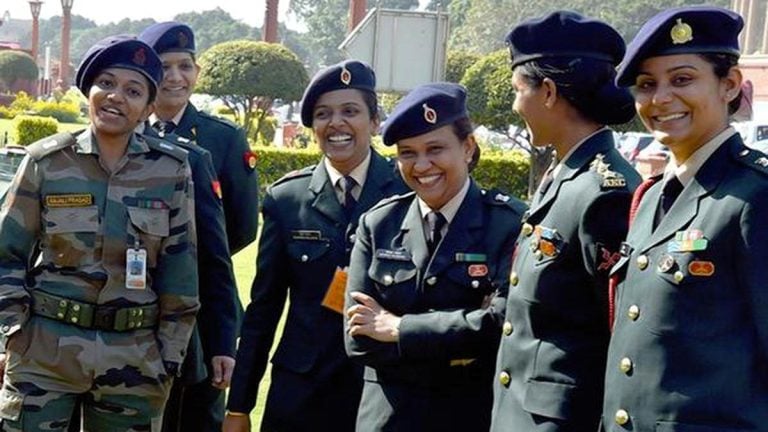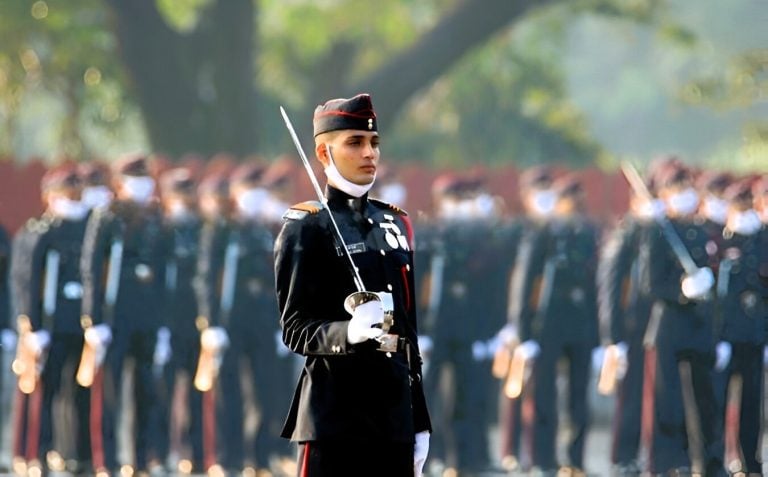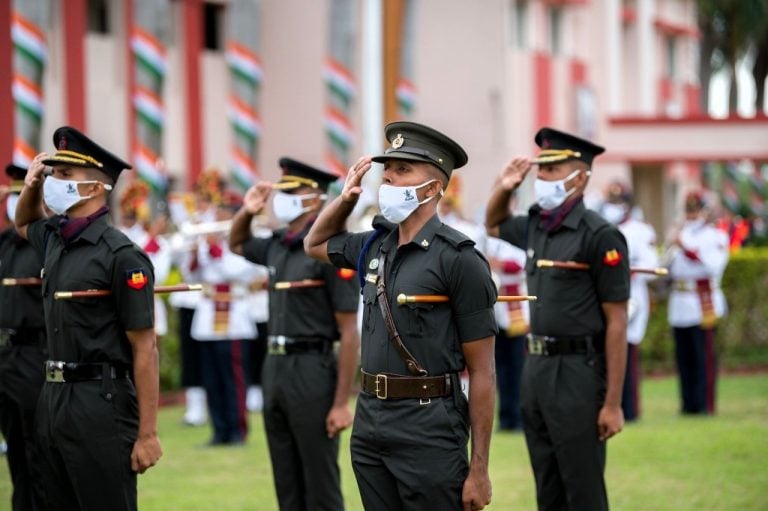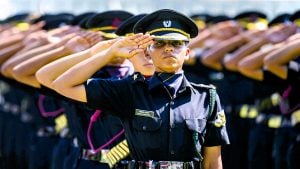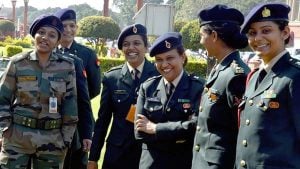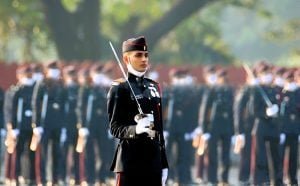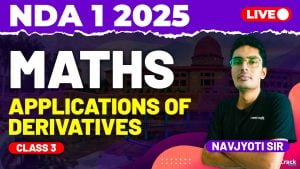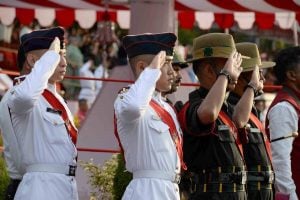The Timeline Of The Testing
The first test of Stage 1 in SSB is OIR tests and after that candidates go for PPDT tests where they write a story by watching a hazy picture on the screen. After then they are given a break of a short time and called in groups of 12-16 for further group testing of stage 1. The candidates are made to sit in a semi-circular fashion in front of 3-4 assessors who will put a keen eye on all of them during the testing.
The Narration Of Story By All The Candidates
The first task in this group testing is the narration of the story, which the candidates have written a while ago, in front of all other candidates and assessors. The candidates narrate their story one by one in order of their chest numbers while other candidates listen to their stories attentively. This practice of listening to the stories of other candidates is necessary so that an appropriate group discussion can take place later based on the stories of each other.
A few candidates find this habit of listening to the stories of other candidates as nonsense and then have a problem in comprehending the stories of others during the discussion as well as have trouble in reaching to a mutual group consensus story. This reflects poorly as if a candidate doesn’t know the stories of others then he won’t be able to understand the different themes of stories and will emphasize only on his story despite the disagreements of other candidates. It is necessary that a candidate understand well about the requirements to reach a mutual agreement to form a group consensus and concludes the testing well.
If not, then it clearly indicates that the candidate is poor in social adjustment and has less interpersonal skills. Handling opposing views with great skills is very common practice in the armed forces and it is expected from a future officer that he is great in this regard. Also, if the candidate is able to influence the group in a positive manner so that they have taken his ideas into consideration and action to form the group consensus story then it shows that candidate is to lead and manage a group in an effective manner.
The Fierce Group Discussion
As soon as the last candidate of the group finishes with his story narration, group discussion is initiated by any member of the group. The typical time that is allocated by the assessors for the group discussion is around 10 minutes during which the candidates have to discuss in a conductive manner and reach a group consensus mutually.
We have seen that whenever we are sitting with friends, family and acquaintances during our daily course of action or whenever we start a discussion on any topic concerning our lives with them, some kind of disagreements will appear. The conflicts that arise out of mutual discussion lead to disapproval of high order regarding each other’s views and belief system. This type of emotional situation can cause stress on us and at this moment of stress, our true self is brought out by us.
Tips To Better The Narration And Handle The Group Discussion
• To handle disagreements and disapprovals in a group, a candidate requires skills of the highest order. Your reaction when you are encountered by an argument by another candidate reflects how you will manage in a group. It is of high interest for the assessors to watch candidates putting their points back and forth in an aggressive manner. They take a high interest in the behaviour of the candidates regarding his emotional stability when he is subjected to constant contradictions by his peers.
• They assess the level of patience that the candidate holds and to what extent he is able to resolve the arising conflicts in the group. It is very pertinent that the candidate is able to put across his views in a strong manner and steer away from the group towards a new direction when the discussion becomes stagnant because of constant repetitions of arguments of similar nature.
• The process of group discussion requires clear views and maximum participation from all the candidates and the assessors focus on the fact that to which degree calmness and clear-headedness you possess. When you first speak in the narration and afterwards in the group discussion then certain factors are established in the mind of the candidates as well as the assessors such as- your body language, voice modulation and tone, the chosen words and phrases that you use to put your views in front of everyone.
• These factors help you in creating an influence in the minds of others and your qualities will be shown as the discussion will further move ahead. A candidate shouldn’t fear to engage with the others and by doing so he should be able to influence the group positively. You should also consider the feelings as well as views of your group members in order to steer the discussion in the support of your views but this shouldn’t be done at the cost of neglecting the interests and concerns of your group.
• One’s body language projects the aptitude of the candidate along with mental inclination that he holds in the ongoing activity. Your body language and words should be able to balance out each other and one shouldn’t be dominating with regard to another. To look interested, active, agile and focused in the discussion you would have to maintain your body language in such a way that you won’t be taken as someone who is lethargic and is unable to comprehend the situation.
• The quality points that you will speak instead of repetitions of a single point will bring the attention to you and will form one of the bases of your selection or rejection. You can have a fantastic story but if you aren’t able to project it in the group then it will create a barrier for your stage 2 selection. The assessors seek a candidate that manages and leads the group while considering the best interests of the entire group and not just for him. They want to see possible OLQs in the promising candidates who will further showcase them in a better manner in the second stage of the testing.
You can prepare for SSB interview and defence entrance exams such as NDA, AFCAT, INET, and CDS by taking Written Online courses as they will not only give you access to full-length quality lectures but will also provide the facility to take standardized mock tests for better study and strategic growth in the exam. You can take multiple quizzes after each lesson to ensure the full understanding of the subject along with creating your customized lesson plans. You can check out the course content along with other important specifics at SSBCrack exams.
You can also access them through the SSBCrack Exams app available in the google play store.
Jai Hind

